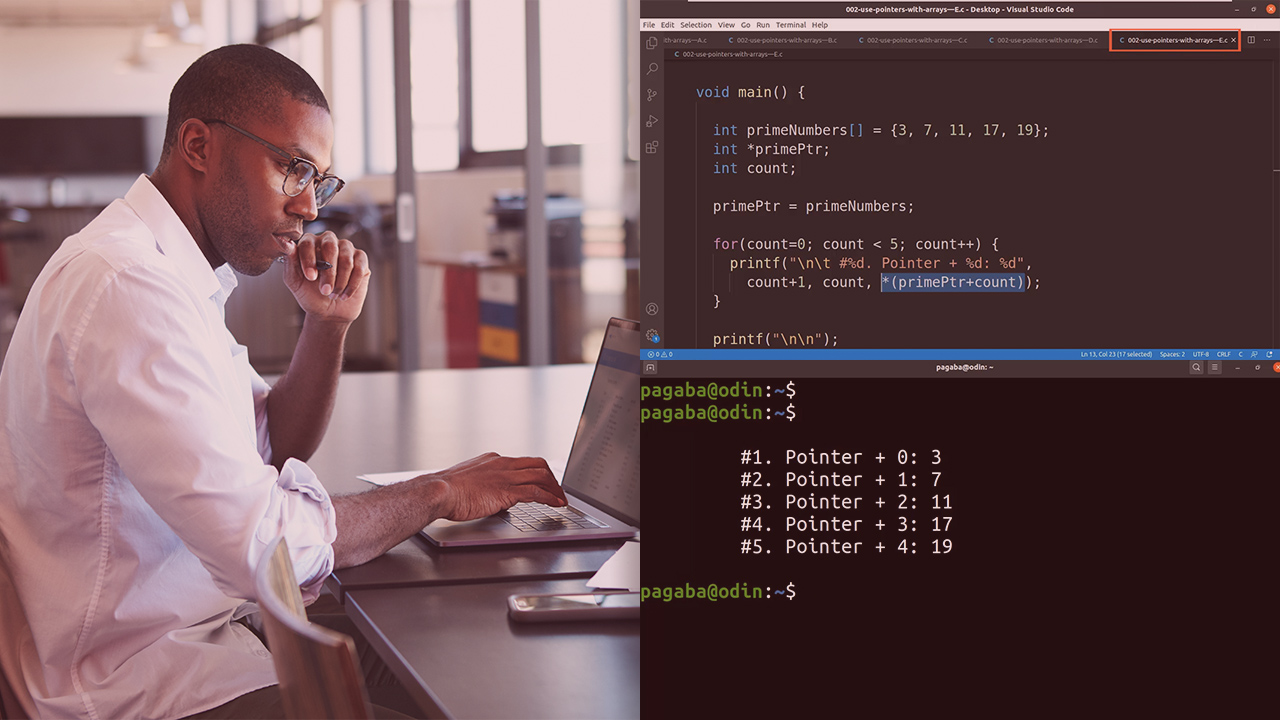- Course
Using Structures in C
C is the foundation of many of the languages and operating systems in use today, and it isn’t going away any time soon. This course teaches you how to use C Structures the right way.

- Course
Using Structures in C
C is the foundation of many of the languages and operating systems in use today, and it isn’t going away any time soon. This course teaches you how to use C Structures the right way.
Get started today
Access this course and other top-rated tech content with one of our business plans.
Try this course for free
Access this course and other top-rated tech content with one of our individual plans.
This course is included in the libraries shown below:
- Core Tech
What you'll learn
If you want to learn how to program networks, operating systems, or even embedded systems, you can do a great deal worse than C. In this course, Using Structures in C, you’ll learn to work with user-defined data types and structures. First, you’ll explore how to build structures. Next, you’ll discover how to nest Structures, use Structures in functions, as well as use Structures with Pointers. Finally, you’ll learn how to use Bit Fields to manage the use of memory within Structures. When you’re finished with this course, you’ll have the skills and knowledge on how to put Structures in C to good (and proper) use.

